Please note that our office will be closed on Monday, August 5, 2024 for the Civic Day Holiday.
We will be happy to assist you when our office reopens on Tuesday, August 6, 2024 at 8:30am.
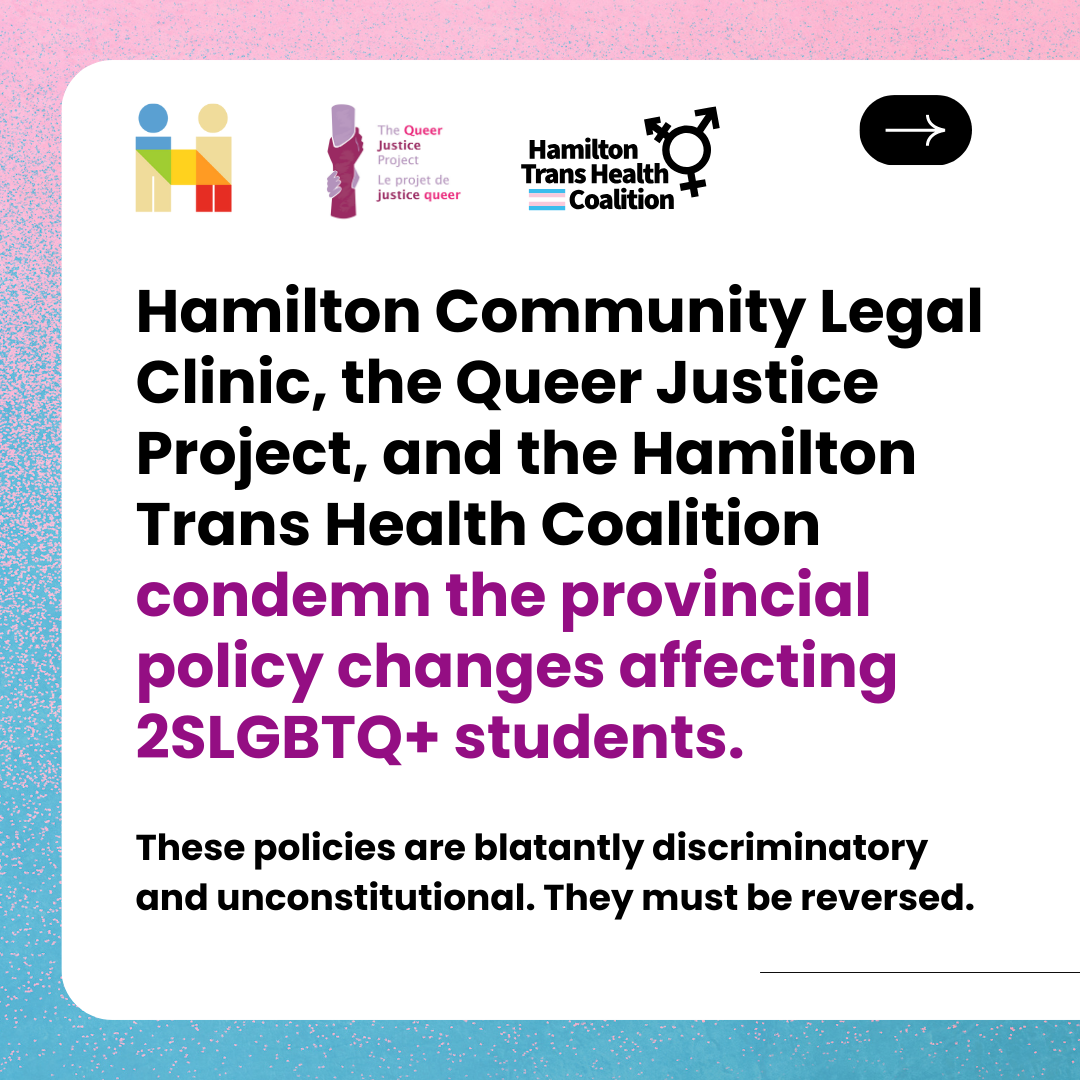
The Queer Justice Project (QJP), the Hamilton Community Legal Clinic (HCLC), and the Hamilton Trans Health Coalition (HTHC) condemn the recent actions of the Premiers of New Brunswick, Manitoba, and Saskatchewan with regards to promised or implemented discriminatory and unconstitutional changes to school policies relating to name changes and pronoun usage. We also note the recent concerning comments made by Ontario’s Education Minister Stephen Lecce, stating that “parents must be fully involved” when youth elect to use a different pronoun at school. We call on each government to reverse these policy decisions and to commit themselves to respecting the human rights of all students, and to creating inclusive, supportive, and healthy school environments for all youth. We caution other provinces against taking similar actions.
Specifically, New Brunswick has implemented changes to Policy 713 that will now require that youth under the age of 16 seek parental consent to change the names and pronouns used while at school, and removes the guarantee that children will be able to participate in sports and extracurricular activities which are consistent with their gender identity. Saskatchewan is also requiring youth under 16 to obtain parental consent to change the names and pronouns used at school, and has also undermined the provision of sexual health education by enabling parents to decline their child’s participation and by prohibiting third-party educators. Manitoba’s current Premier has made election promises relating to expanding “parental rights”, though the exact nature and wording of these changes are unclear. The Premier did indicate that at minimum parental rights to be informed of their child’s request to change the name and pronouns used at school would be part of the consultations on these changes. Ontario’s intentions on this matter are not clear as of yet, though the comments of the Education Minister certainly suggest an intention to make similar discriminatory changes to their policies.
These policies will undoubtedly cause severe and irreparable harm to many Trans and gender diverse students. The unfortunate reality is that many young Queer community members cannot rely on positive reactions or supportive responses to their Queer identities, should they be revealed to their families. The emotional, social, psychological, and potentially physical negative consequences of being forcibly “outed” are well known to experts and Queer communities. Forcibly outing a Queer individual is an act of violence. Homophobia, and particularly transphobia, remain significant issues within our society, as these policies demonstrate.
These governments do not deserve the benefit of the doubt or the presumption of good intentions in the introduction of these policies. There was no problem that these policies are meant to solve, no legitimate purpose they could possibly serve other than to interfere with the very personal decisions of Queer youth of when, or if, to reveal their identities to their families. They have failed to define any specific right of parents that is being violated or harm being suffered by parents due to schools respecting the requested names and pronouns of their students.
These policy decisions cannot be removed from the context of a growing movement of hate and conspiracy towards Queer identities generally, and Trans identities specifically. This includes a significant lack of understanding, and the purposeful spreading of disinformation by some, relating to gender affirming health care, particularly for youth.
These policies, notably all emanating from conservative provincial governments, with tacit support from the current federal Conservative party leader, are a continuation and escalation of the rise Transphobia and general anti-Queer sentiments being witnessed in our society. It also mirrors some of the transphobic legislative and policy decisions being made in parts of the United States. These policies are blatantly discriminatory and unconstitutional. They must be reversed.
Each province has sought to justify these decisions and comments by citing “parental rights”. However, it is clear that these policy changes, whether intentionally or not, will have a significant negative and discriminatory impact on Queer students. Policy changes relating to name and pronoun usage by students at school are inherently related to the gender identities of students, which is a prohibited ground of discrimination under provincial human rights laws, federal human rights law and the Charter of Rights and Freedoms, and internationally recognized human rights and rights of children.
Children under the age of 18 are rights holders in their own right, including rights to be free from discrimination based on their personal characteristics, freedoms of expression and of conscience, and a right to privacy. Equally, Canadian family law, including in each of these provinces, provides that the overriding interest will always be the “best interests of the child”, with the primary considerations being the physical, emotional, and psychological safety and security of the child. Children are also given rights to participate in the decisions made about them and their care, in accordance with their age and capacity, giving them the right to an evolving degree of autonomy. In many jurisdictions, where youth have shown a level of independence and self-sufficiency before attaining the age of 18, they can be deemed to have removed themselves from parental authority.
In contrast, the term “parental rights” is becoming a commonly used right-wing extremist political catchphrase primarily seen in relation to advocating for greater restrictions on a school system’s ability to address topics relating to diversity initiatives and sexual education, specifically in relation to sexual orientation and gender identity. The sudden fervour in support of parental rights does not include any apparent interest in any topics or educational goals other than sexual health, sexual orientation, gender identity, or other diversity initiatives. It is a hate movement fuelled by a moral panic.
The term “parental rights” is rarely explicitly seen in Canadian law, though there are rights related to the integrity of and non-interference with the family unit that are owed to all its members. Parental participation rights within existing school systems, as outlined in the education legislation of various provinces, also exist. Many provincial laws instead utilize definitions for terms like “decision-making responsibility”, “parenting time”, and “parental responsibilities”, which relate to the concepts of custody and access. These terms demonstrate a recognition that the fundamental nature of the relationship of a parent to their child is one of responsibility, not of rights. These responsibilities relate to the obligation to provide support and guidance to a child, whose right it is to receive these from their parents. Parents do not own their children. As a result, parental rights are not absolute and can be terminated where there is a compelling reason, including where it is determined to be in the best interests of the child.
No one denies that ideally parents would be able to be informed and involved in all important aspects of their child’s life, and that all children should be confident that being fully open with their parents would result in nothing but love and support. But that is not reality. Pretending it is erases the vast majority of Canadian and global history, including the situation in the majority of the world today, where Queer identities are the frequent targets of discrimination, criminalization, ostracization, and violence. This includes the perpetuation of these acts by immediate family members.
Beyond the ahistorical nature of these policies, it is quite clear that these policy decisions are being made without proper consultations with youth who may be affected, Queer communities, or experts on children’s health and well-being. The government of New Brunswick was unable to produce any evidence of the complaints they alleged initiated the review of Policy 713, and once initiated, many stakeholders in New Brunswick expressed concern about their exclusion from any consultation process. The government of Saskatchewan has avoided answering the question of what experts were consulted in making these changes, and instead has reiterated the importance it places on the perspective of parents and has pointed to apparent popular support for the policy in opinion polls.
To be clear, the purpose of human rights legislation and the Charter is to protect vulnerable minorities from the potentially discriminatory attitudes and actions of the majority. Popular support for a discriminatory policy does not save it under Canadian law, and in fact reinforces the need for protection of that group.
In mid-August, the New Brunswick Child and Youth Advocate, Kelly Lamrock, issued a report that included a comprehensive overview of the history of Policy 713, its purpose, the review process, and the legal framework around parents’ rights and the rights of children. After a legal analysis, including the consideration of the perspectives of parents, students, and experts, the report concluded that the changes to Policy 713 violate the Charter rights of Trans and gender-diverse youth to be free from discrimination, to privacy, and to have their needs accommodated. We would highly encourage everyone to read this report in full.
The recent announcement of the policy changes in Saskatchewan have met similar conclusions of human rights violations from the Canadian Civil Liberties Association, which plans to support a legal challenge that has now been filed by national Queer organization Egale and the University of Regina’s UR Pride. The Saskatchewan Advocate for Children and Youth, who was not consulted prior to the announcement of the policy changes, has also indicated her plans to review the new policy while expressing concern over its contents.
Any changes to the accessibility of washrooms that conform to a student’s gender identity would also be a violation of the human rights of students. While the New Brunswick policy changes do not appear to impede this right, it ought to be recognized that the right to the use of washroom facilities in accordance with a person’s gender identity is settled law in Canada. Similarly, the right for all to play in sports and engage in recreational activities generally in accordance with a person’s gender identity ought to be respected. The change in language in Policy 713 does remove the explicit recognition of this, which is unfortunate and should be restored. Trans and gender-diverse students deserve to have their rights explicitly acknowledged and reinforced.
The undermining of sexual health education in Saskatchewan, while not amounting to discrimination, will certainly undermine the health and safety of students and society at large. Comprehensive and fully resourced sexual education is a public good that helps educate youth in an effort to prevent abuse, unwanted pregnancies, and health issues like STIs. Comprehensive sexual education also includes resources and education that acknowledge the diversity of human sexuality and relationships. Third party resources previously used in Saskatchewan that address topics related to diversity were cited as examples by the government of Saskatchewan of what would no longer be permitted. Health experts in Saskatchewan have expressed their concern about the negative impacts these changes will have. Saskatchewan cited parental interests once again as the reason for these changes. It is unclear what role considerations around the health and safety of students played in this decision, or who was consulted prior to their announcement.
The policies being introduced requiring students under 16 years of age to obtain consent from their parents to change the names or pronouns used while at school are discriminatory violations of Canadian constitutional and human rights laws. Anything less than comprehensive and fully resourced sexual health education puts the health and safety of children and broader society at risk. We call on each of these provinces to reverse their decisions, commit themselves to respecting the human rights of all students, and to creating inclusive, supportive, and healthy school environments for all youth. We caution all other provinces against taking similar actions.
Recipients of Ontario Works (OW) or Ontario Disability Support Program (ODSP) may be eligible to obtain a cooling device (such as an air conditioner) as a discretionary benefit.
As the frequency of extreme heat events occurs, the need for cooling devices increases. Those without access to cool spaces during extreme heat events can be subjected to prolonged exposure. Such exposure can cause loss of internal temperature regulation which can lead to various negative health effects or, in some cases, death.
The impacts of extreme heat events disproportionately effect certain vulnerable populations, such as the elderly, low-income earners, and individuals with existing health vulnerabilities.
Learn more, including eligibility requirements and restrictions, in OW and ODSP Discretionary Benefits and Cooling Devices (PDF). This is a resource developed by the Canadian Environmental Law Association.



February 22, 2023
In the fall of 2021, five houseless individuals brought the City of Hamilton to Court over its ongoing practice of encampment evictions. The argument is a simple one: preventing houseless residents from erecting tents for shelter and protection where there are insufficient, accessible alternatives, violates the Charter of Rights and Freedoms.
The Court accepted this argument in a recent decision out of the Region of Waterloo. We believe it is inevitable a court will rule the same way in Hamilton.
We provide the following update for our supporters and community stakeholders on what’s happening in Hamilton’s encampment litigation.
In June 2022, new Applicants were added to the lawsuit and a new Notice of Application was provided to the City. There are now 19 Applicants, all but two of whom remain unhoused.
We recognize that this litigation comes amidst an ongoing affordable housing crisis, where there simply are not enough affordable and permanent housing options. Hamilton also suffers from a chronic lack of emergency shelter beds. Of the beds that are available, many are not accessible or viable options for the people who need them most.
We have asked the Court to find that, in the absence of suitable alternatives, encampment evictions violate Charter rights, namely the right to life, liberty and security, and the right to equality without discrimination. The remedies we seek set parameters around the size and location of encampments in order to balance the interests of the housed and unhoused community. Specifically, we have requested that tents be allowed:
We provided the City of Hamilton with our evidence last year, including experts such as academics specializing in homelessness, the former UN Rapporteur on the Right to Housing, and physicians. We have also provided the City with evidence from front-line workers who have witnessed evictions and the lack of shelter spaces available in Hamilton.
At this time, we are waiting for the City of Hamilton to provide its own evidence, and to determine whether it intends to bring motions to exclude some of our expert evidence of front-line workers.
We are also participating in Case Management this week, where a judge will provide direction on the next steps for the case. We expect that after Case Management, we will be able to provide a further update about the schedule for the next steps in the lawsuit and whether the City will oppose our evidence. We also hope to be able to provide an update soon about whether the City intends to enter into settlement discussions and mediation. We remain hopeful that the City of Hamilton, with a new City Council, will be willing to resolve this lawsuit without continued litigation. Until that happens, we will continue to move the lawsuit forward.



February 1, 2023
Last Friday, the Ontario Superior Court of Justice released its long-awaited decision on the Region of Waterloo’s Application to remove individuals from a homeless encampment. The Court held that the Region could not remove people from the encampment without violating their right to “life, liberty and security of the person” guaranteed by the Charter of Rights and Freedoms.
The Superior Court made the following factual findings:
We have repeatedly raised the very same issues with the City of Hamilton and continue to do so in the Charter Application currently before the Superior Court about encampments in Hamilton. We are confident that when our case is heard, the Superior Court’s judgment in the Region of Waterloo case will be followed for Hamilton.
Until the City can provide encampment residents with immediate, permanent and supportive housing, any kind of encampment eviction violates the Charter. In addition to violating the rights to life, liberty and security of the person, encampment evictions discriminate against unhoused Indigenous and racialized individuals, women, people with disabilities, the 2SLGBTQIA+ community, and families. Until the City invests in and delivers permanent, affordable housing and related supports, the Charter requires the City to permit people to use tents and other survival materials.
Instead of complying with the Charter and taking meaningful and concrete steps to respond to these longstanding concerns, the City continues to rely on By-law enforcement and eviction, and on pouring resources into fruitless litigation that could be spent on affordable housing.
Indeed, the City has just recommended hiring two additional Municipal Law Enforcement Officers, at an annual cost of $277,000.00, and two Hamilton Police Services officers at an annual cost of $268,646.00 (see agenda item 10.4). Policing continues to be a violent and inappropriate solution to the lack of affordable housing. We oppose it unequivocally.
The City’s own Report arising from consultation sessions states “encampment evictions have profoundly negative impact on people’s physical and mental well-being.” The Superior Court reached the same conclusion. It remains to be seen whether Council will finally acknowledge these profound harms, move away from By-law enforcement, and focus on the creation of affordable housing.
The Hamilton Community Legal Clinic, Hāki Chambers Global, Ross & McBride, and the Community Legal Clinic of York Region, continue to challenge the City’s discriminatory approach to encampments and unhoused residents in Court, until such time as Council takes steps to remedy the harm the City has caused to houseless residents.
For media inquiries please contact:
Sujit Choudhry: (416) 436-3679, (917) 683-1380
Sharon Crowe: (437) 218-2364
Ashley Wilson: (905) 572-5833
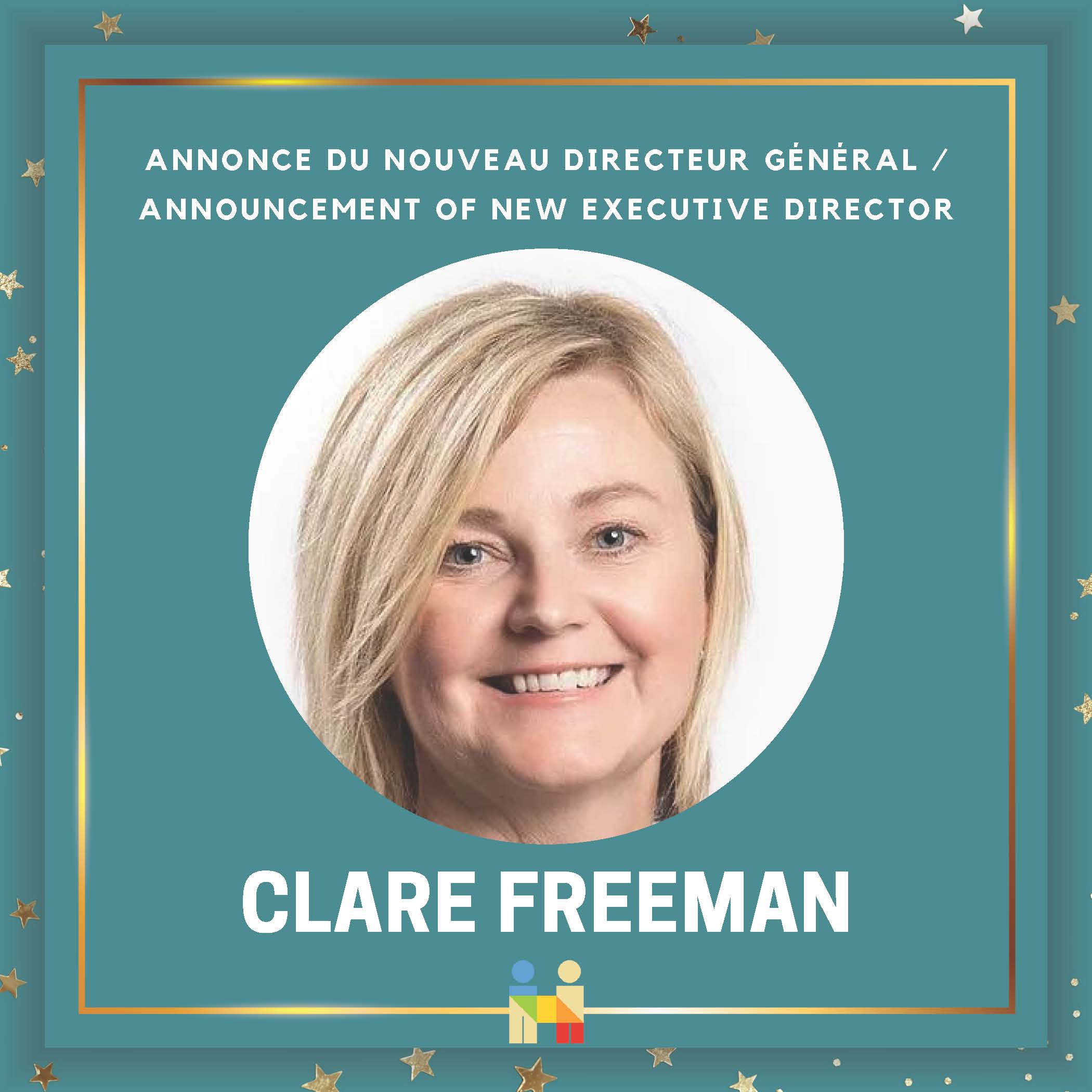

Clare has worked in the non-profit sector for approximately 19 years as an Executive Director. She has extensive experience in leadership, strategy, public relations, advocacy, and management. She has served on many local, provincial, and national boards and committees, and is deeply committed to giving back to her community through her engagement with numerous social justice initiatives.
Since 2015, Clare has served as the CEO of Dr. Bob Kemp Hospice and bereavement services. Additionally, her past roles include Executive Director, Interval House of Hamilton; Counselling Coordinator, Sexual Assault Centre of Brant; and Continuing Education Professor of the Child and Youth Program, Mohawk College. She obtained her Bachelor of Sociology from the University of Western, as well as her Master of Social Work from York University.
Clare is a passionate and rights-based social justice advocate, and embodies the principles and values that the Hamilton Community Legal Clinic stands for. She will brings a wealth of experience from the organizations she has worked for in the past that will be of benefit to the Hamilton community.
We would like to congratulate Clare on her new role and look forward to continuing to fight for access to justice under her leadership.
We also extend our deepest gratitude to Hugh Tye for his exceptional leadership as our Executive Director over the past 26 years.
The Board of Directors
Hamilton Community Legal Clinic

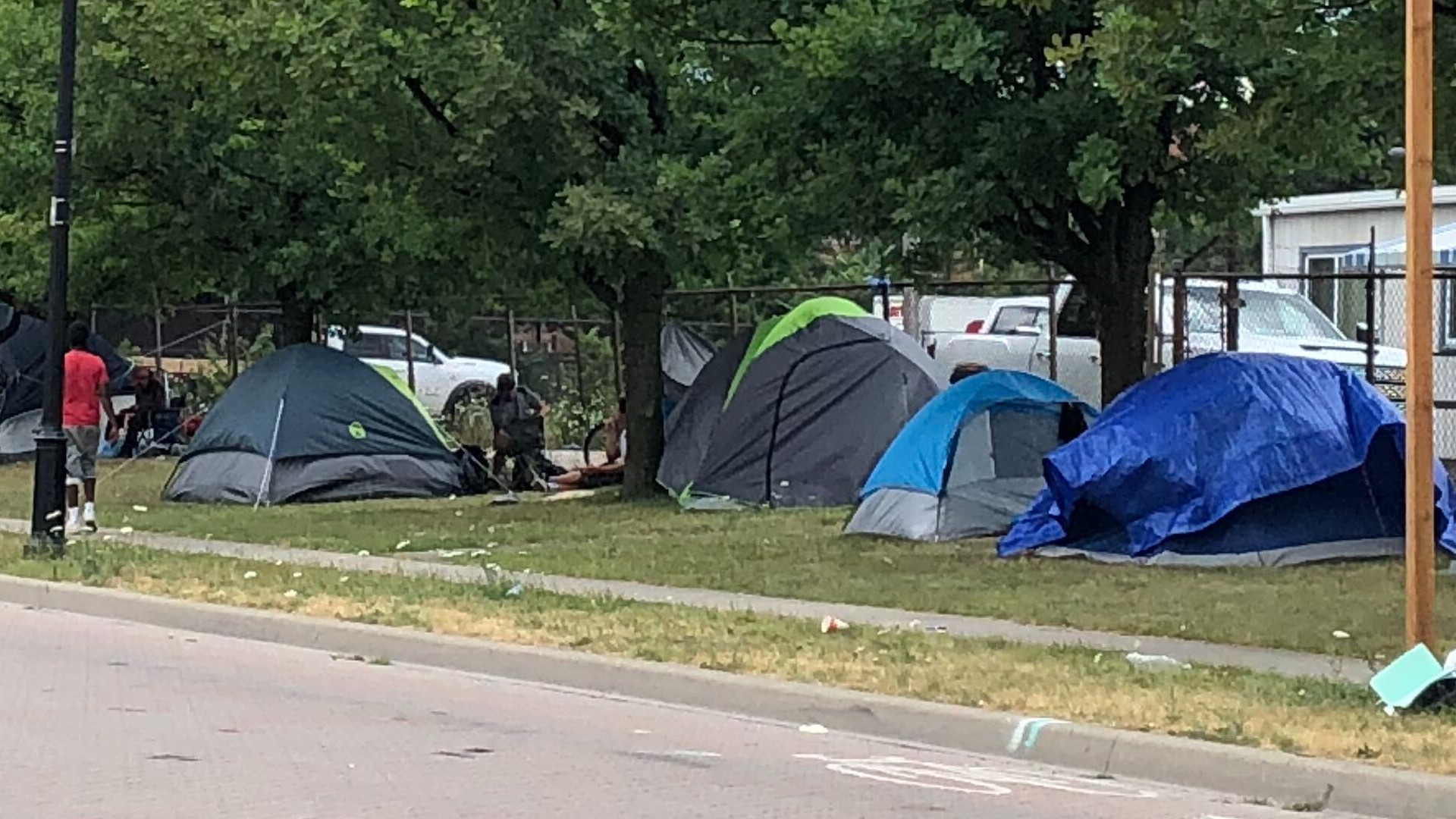
The Hamilton Community Legal Clinic, Matthew Green (Member of Parliament for Hamilton Centre), and Wade Poziomka and Jennifer Zdriluk, partners in the Human Rights Group at Ross & McBride LLP stand in solidarity with those in our community exercising their right to peaceful protest in our community over the past two days to support those in encampments with no options. We echo the concerns of Councillor Nrinder Nann posted on social media today wherein Councillor Nann stated:
“Very troubling footage this week of excessive use-of-force by Hamilton Police. Last year, stats showed disproportionate use against black resident in Hamilton. This is counter to the City’s Safety & Wellbeing Plan and breaks trust. It is not enough to say systemic racism exists”.
Peaceful protest is a hallmark of a free and democratic society. It must not be criminalized. We call upon the Hamilton Police Service to exercise proper restraint, de-escalate community tension and ensure that those engaged in peaceful demonstrations are permitted to exercise that right. Violent interactions with police will only serve to further the divide that exists between police and community. Public resources are better utilized addressing the root problems – such as a lack of affordable housing and community support – than fighting those attempting to show support to vulnerable members of our community.
We call for the immediate release of those taken into custody. Community support and protest must not be criminalized. We encourage Chief Bergen to take steps to ease police enforcement measures as community tension escalates. We encourage supporters to join those in peaceful protest to highlight the concern around recent police escalation.
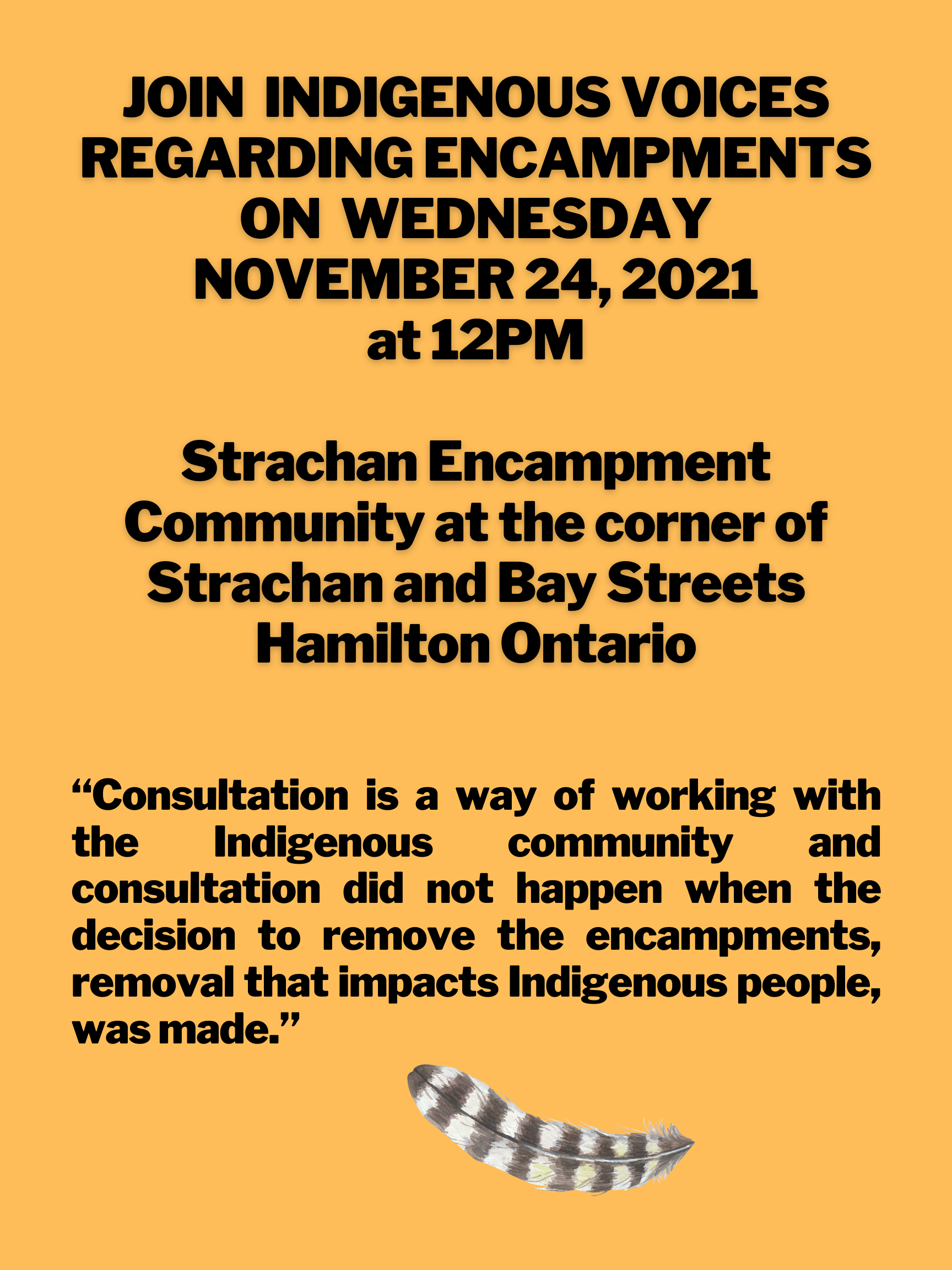
Indigenous people see the impacts of colonization on a daily basis. We are assured to either hear, see or feel these impacts of colonialism, racism and discrimination every single day. Ongoing colonial and systemic policies continue to disproportionately impact the lives of Indigenous peoples across Turtle Island, including within the City of Hamilton.
Canada continues to oppress Indigenous people through the use of harmful colonizing polices.
These policies include the doctrine of discovery, the Indian Act, the 60’s scoop, residential schools, child welfare systems and the colonial legal system.
The Assembly of First Nations notes: “The Doctrine of Discovery emanates from a series of Papal Bulls (formal statements from the Pope) and extensions, originating in the 1400s. Discovery was used as legal and moral justification for colonial dispossession of sovereign Indigenous Nations, including First Nations in what is now Canada. During the European “Age of Discovery”, Christian explorers “claimed” lands for their monarchs who felt they could exploit the land, regardless of the original inhabitants. This was invalidly based on the presumed racial superiority of European Christian peoples and was used to dehumanize, exploit and subjugate Indigenous Peoples and dispossess us of our most basic rights. This was the very foundation of genocide. Such ideology led to practices that continue through modern-day laws and policies.”
The Indian Act was created in 1876. The main goal of the Act was to force the First Nations peoples to lose their culture and become like Euro-Canadians, otherwise referred to as forced assimilation. The Indian Act has been changed many times and it is still an oppressive tool of the Canadian government. It does not affect either the Métis or Inuit.
These tools of the colonial project have led to Indigenous people’s loss of land, language, identity, and way of life.
A clear example of the policies that cause harm is the recent court ruling that enables the local municipal government of Hamilton to forcibly remove homeless people from public spaces. This violent act further displaces encampment residents, destroys any sense of safety and/or security by dismantling the only place they call home and violently disposing of personal belongings. Replicating 500 years of police and government sanctioned colonial violence.
Indigenous people are over-represented in Hamilton’s encampment population.
The Truth and Reconciliation Calls to Action have been committed to by the government of Canada to try to rectify some of the wrongs done to Indigenous people. It is a tool we use to remind that there is a necessity to work with Indigenous people and communities to change the way things are done and reduce the harm. Consultation is a way of working with the Indigenous community and consultation did not happen when the decision to remove the encampments, removal that impacts Indigenous people, was made.
Hamilton and Burlington lie within the Haudenosaunee and Anishinaabe territories and fall under the dish with one spoon and the two row wampum treaty agreements. Treaties are binding agreements between two groups and there are responsibilities to all that these agreements include. Have municipal governments forgotten they are treaty partners? Or have they failed to ever acknowledge and put this relationship into practice?
This is an important point that we all need to recognize; each and every person here has a responsibility to educate themselves, support reconciliation and understand our treaty obligations. The education system has proven to have failed Indigenous peoples and been used as a tool of colonialism. We have seen how the education system has failed through the confirmation of unmarked graves at residential schools that has made the news headlines for months and many Canadians just learning about these acts of genocide. We are in charge of our own education and it is no longer acceptable to say “I didn’t know”. Ignorance is not bliss.
We recognize our roles and responsibilities and are speaking out against the mistreatment of our brothers and sisters who have had to make encampments their homes. The Indigenous way of being, our way of life and our roles and responsibilities DO NOT INCLUDE treating other human beings with such disrespect to dismantle their homes and toss their material possessions to the garbage. This is not how we manage our relationships with others. Our way of being includes consultation, compassion, empathy, caring and love.
Removing the encampments without alternatives for those displaced is taking away the spoon. When we take away the spoon, we are feeling privileged enough to interpret the treaty, Dish with one Spoon, in a manner that justifies our behaviours and accommodates only our needs and wants. This was not the intent of the treaty on Indigenous land. No one is privileged to interpret the treaty to benefit only them and this includes elected officials such as mayors and council members as well as policing agents who carry out their mandates.
It is our responsibility to remind Canadians that you are on Indigenous territories and we have agreements that are older than ourselves, older than any colonial law. Through these agreements we have roles and responsibilities to each other and the land. Wearing an Orange Shirt one day and violently dismantling encampments the next is a contradiction, example of a performative stunt with no real intention for true systemic transformative change to ensure we are upholding treaty obligations and working towards reconciliation.
If the City of Hamilton is truly committed to working towards reparation and reconciliation then the removal of the statue of Victoria, your Queen, is essential to ending the oppression that a majority of city council embraces toward Indigenous people. By not having her already removed reminds us that the city is not hearing the voices of Indigenous people and they continue to trigger Indigenous people with the same trauma, plus, associated with the John MacDonald statue. TAKE DOWN YOUR QUEEN. Indigenous people do not need constant reminders of genocide.

We are disheartened that the Court considered the desperate act of sleeping in an encampment as a choice. We are concerned that this decision risks perpetuating the stigmatization of the unhoused population. By the City’s own admission, shelters are full and are unable to meet peoples’ disability related needs. This gap often results in people being denied entry or kicked out. This segment of the population will now be left to sleep outside in harms’ way, without the use of a tent to shield them from the harsh elements. Some will move further off the grid and into hiding, disconnecting from vital supports like medical and street outreach.
While we disagree with the decision, we are encouraged that there has been increased public attention and criticism of Hamilton’s mistreatment of individuals in encampments, particularly in contrast to other innovative and compassionate municipalities that have expanded shelter options and provided food, social workers, mental health crisis worker, potable water and bathroom facilities. Going forward, we hope that the City will adopt similar creative solutions to ensure the safety and wellbeing of the community.
This decision is not an endorsement or a license for the City to aggressively and violently evict homeless persons into a cycle of displacement. The City must refrain from the aggressive and heavy handed displacement tactics seen in Toronto. It must ensure that people have an actual indoor space option before being told to move along. It must increase the number of shelter spaces, particularly for women and couples. It must urgently provide low barrier shelter options so that individuals are not repeatedly kicked out. It must prioritize investment in affordable, supportive housing, refrain from enacting policies that contribute to homelessness, and seek funding from other levels of government to actually meet the needs of the unhoused community.
Despite not granting the injunction, the judge confirmed that there is a triable Charter issue. The full Charter challenge remains the next step in this matter, should the City continue to fail to meet the needs of the unhoused population.
The bottom line is that, despite the Court’s decision, there remains a segment of Hamilton’s population, the most vulnerable, who have nowhere else to go. We are hopeful that the City will commit to an ongoing dialogue with community stakeholders and prioritize addressing the housing crisis over the enforcement and displacement of homeless individuals.
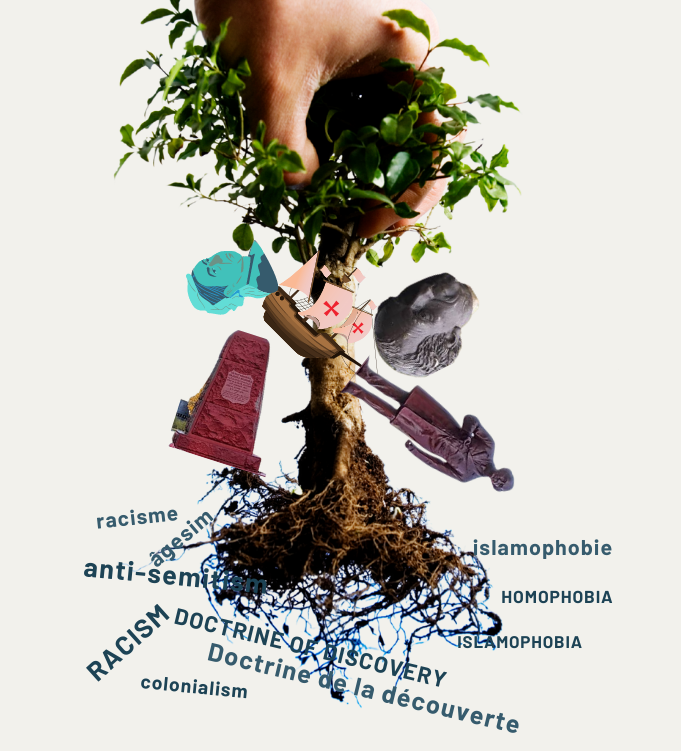

For immediate release
HAMILTON, ON, August 8, 2021 — The Hamilton Community Legal Clinic (HCLC) congratulates our Executive Director, Hugh Tye, on more than thirty years of service to Ontario’s legal clinic system on the eve of his retirement.
Hugh was called to the bar and joined the Centre for Spanish Speaking Peoples as a staff lawyer in 1988. In 1990 he joined Hamilton Mountain Legal & Community Services, where he took the reins as Executive Director in 1995.
Hugh has led HCLC as Executive Director since its inception in 2010 with the amalgamation of three clinics: Dundurn Community Legal Services, Hamilton Mountain Legal & Community Services and McQuestern Legal & Community Services.
During this time he has led initiatives to improve access to justice for historically marginalized communities, like YÉN:TENE (You and I will go there together) with Indigenous partners, Hamilton Legal Outreach in support of people experiencing mental health and substance use issues, Together We Rise! combating individual and systemic Anti-Black racism, and the Queer Justice Project with Two Spirit and LGBTQAI+ communities. These exist within an ongoing decolonizing, Anti-Racism Anti-Oppression journey to address and dismantle racism and oppression across all areas of our clinic.
Hugh is a founding member of the Association of Community Legal Clinics of Ontario and served as the staff co-chair of the Association Executive until 2002. He has also sat on many provincial clinic committees over the years.
Hugh will retire from this leadership position at the end of 2021, but leaves behind a compassionate, motivated, and skilled team committed to access to justice, strong ties with communities and agencies across Hamilton engaged in the work of supporting our neighbours and protecting their dignity, and deep, organization-spanning practices of anti-oppression and continuous improvement.
“You have waged an incredible fight for access to justice and the very existence of a critical component to that access in Ontario,” said Sandi Bell, Immediate Past Chair of the Board of Directors of HCLC. “And always with calm, compassion, and thoughtfulness that often exceeded the moment. When it is time to say goodbye, we will do all we can to follow the fierce example you’ve set for us.”
We invite Hugh, our community, and all those across the clinic system who have worked with him on issues from the neighbourhood level up to the provincial to take a moment for reflection today: look back upon the legacy of a tireless champion and take heart in what great passion can accomplish.
The Board of Directors
Hamilton Community Legal Clinic/Clinique juridique communautaire de Hamilton